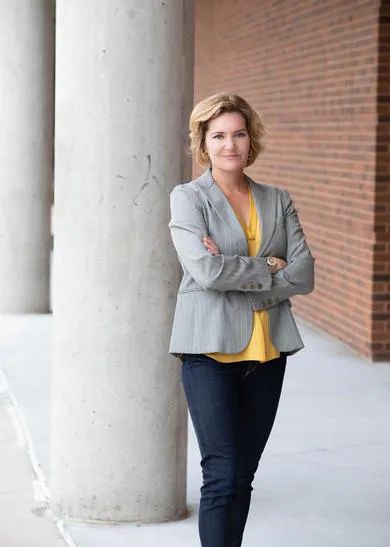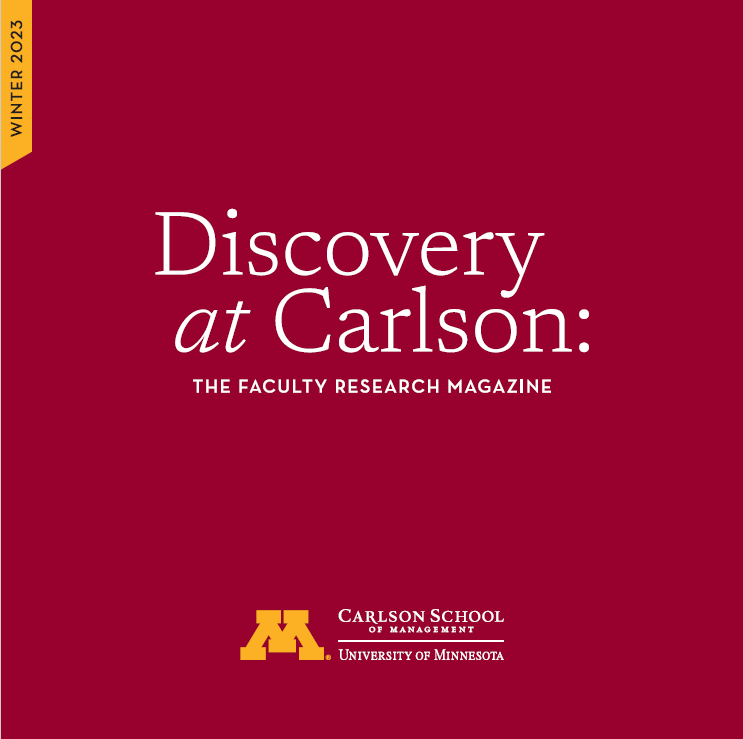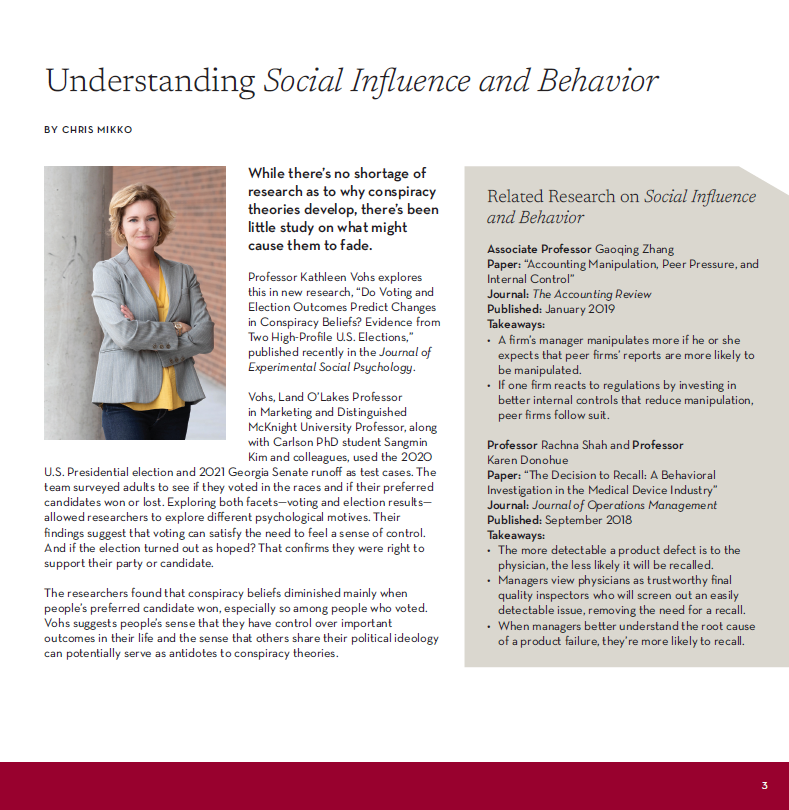Discovery at Carlson·40 How Voting and Elections Impact Conspiracy Beliefs

How Voting and Elections Impact Conspiracy Beliefs
While there's no shortage of research as to why conspiracy theories develop, there's been little study on what might cause them to fade.

Professor Kathleen Vohs explores in this new research, “Do Voting and Election Outcomes Predict Changes in Conspiracy Beliefs? Evidence from Two High-Profile U.S. Elections,” published in the Journal of Experimental Social Psychology.
Vohs, Land O’Lakes Professor in Marketing and Distinguished McKnight University Professor, along with Carlson PhD student Sangmin Kim and colleagues, used the 2020 U.S. Presidential election and 2021 Georgia Senate runoff as test cases. The team surveyed adults to see if they voted in the races and if their preferred candidates won or lost. Exploring both facets—voting and election results—allowed researchers to explore different psychological motives. Their findings suggest that voting can satisfy the need to feel a sense of control. And if the election turned out as hoped? That confirms they were right to support their party or candidate.
The researchers found that conspiracy beliefs diminished mainly when people’s preferred candidate won, especially so among people who voted. Vohs suggests people’s sense that they have control over important outcomes in their life and the sense that others share their political ideology can potentially serve as antidotes to conspiracy theories.
Related Research on Social Influence and Behavior
Paper: “Accounting Manipulation, Peer Pressure, and Internal Control”
Journal: The Accounting Review
Published: January 2019
Takeaways:
-
A firm’s manager manipulates more if he or she expects that peer firms’ reports are more likely to be manipulated.
-
If one firm reacts to regulations by investing in better internal controls that reduce manipulation, peer firms follow suit.

Gaoqing Zhang
ASSOCIATE PROFESSOR OF ACCOUNTING
Accounting Department
EDUCATION:
PhD Accounting 2014 Tepper School of Business, Carnegie Mellon University
MS Accounting 2011 Tepper School of Business, Carnegie Mellon University
BSc Finance 2009 School of Management, Fudan University
EXPERTISE:
Financial Accounting
Financial Institutions
Accounting Standard Setting
Disclosure Regulation
Real Effects of Accounting Disclosure
Paper: “The Decision to Recall: A Behavioral Investigation in the Medical Device Industry”
Journal: Journal of Operations Management
Published: September 2018
Takeaways:
-
The more detectable a product defect is to the physician, the less likely it will be recalled.
-
Managers view physicians as trustworthy final quality inspectors who will screen out an easily detectable issue, removing the need for a recall.
When managers better understand the root cause of a product failure, they’re more likely to recall.

Rachna Shah
PROFESSOR
Supply Chain and Operations
EDUCATION:
PhD 2002 Management Science Fisher College of Business, The Ohio State University
MBA/MHA 1992 Business Administration (Finance) Fisher College of Business, The Ohio State University
BA, with Honors 1988 Economics Delhi University, India
EXPERTISE:
Operational Excellence via Lean Thinking
Process Improvement in Hospital and Healthcare Delivery
Operational Failures such as Product Recalls in Automotive, Medical Device, and Pharma
Causes of Drug Shotages
Environmental Management
Econometric and Psychometric Methods

Karen Donohue
PROFESSOR AND CURTIS L. CARLSON ENDOWED CHAIR
SUPPLY CHAIN OPERATIONS
EDUCATION:
BA Mathematics and Economics, St. Olaf College
MS Industrial Engineering and Management Science, Northwestern University
PhD Industrial Engineering, Northwestern University
EXPERTISE:
Supply Chain Coordination
Behavioral Operations
Environmental Operations
Supply Chain and Operations





